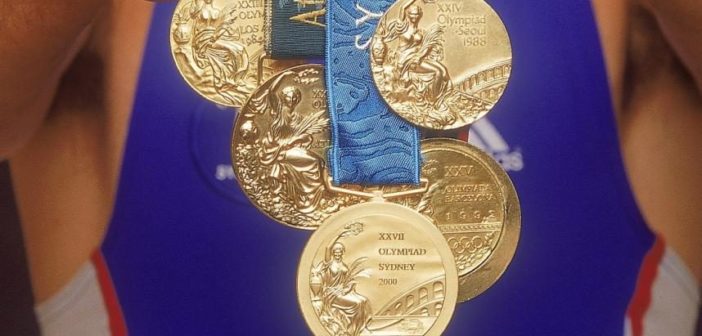The Rio Olympics are now over halfway through, and as we predicted, many of the early concerns have been forgotten, while the world has gripped by some thrilling competition.
Our Beijing “two to watch” both have medals, and hopes of more to come. Diver Cao Yuan took the bronze in the 3m synchronized springboard, but recorded the best score in the preliminary round of the individual event, and competes in the semi-final tonight at 9pm. Gymnast Wang Yan also has a bronze for the team event, having finished 5th in the Vault and 6th in the individual All-Around. She can be seen again in the Floor Exercise final tomorrow.
You’ll forgive me a little twinge of nationalistic pride that my country is (at the time of writing) second on the medal table, one gold ahead of a certain country with twenty times our population. However that pride is tempered by some concern about the approach that’s got us there, and what it says about our attitudes to sport.
British sports receive funding from the government (the money coming from the National Lottery, not the taxpayer). However the funding is dependent on success in international competitions. So sports in which we have recently done well, such as cycling and rowing, are supported, while others are ruthlessly cut adrift.
A healthy degree of national pride seems to me to be a legitimate aspect of sport, as long as we don’t take it too seriously. As a soccer fan I enjoy the tribal aspects of the game: wearing my club’s colors, singing our songs, and engaging in banter with fans of our rivals. However I would never get into a fight over it, as happened far too often in football’s past. Ultimately these loyalties are what Kurt Vonnegut called “granfalloons”, wholly arbitrary groupings which say nothing about who we truly are as people.
And there is more to sport than nationalism. There is pleasure in admiring the skill and dedication of the athletes, the extraordinary feats of which humanity is capable. It is one of the joys of the Olympics that for a couple of weeks global superstars like Usain Bolt share the stage with amateur practitioners of more obscure sports. The world was recently smitten by the wit and down-to-earth charm of previously unknown Irish rowers Gary and Paul O’Donovan. (VPN required)
Perhaps most importantly, international events like the Olympics should inspire children to get off the couch and have a go. Here is where the British model fails: as our medal haul rises, participation in sport has fallen. American kids too are playing less sport, with pressure to succeed blamed for taking the fun out of taking part. Too much focus on elite success is unhealthy for us. So maybe it’s time to turn off the TV, and go for a bike ride, or a swim.
Photo: telegraph.co.uk




